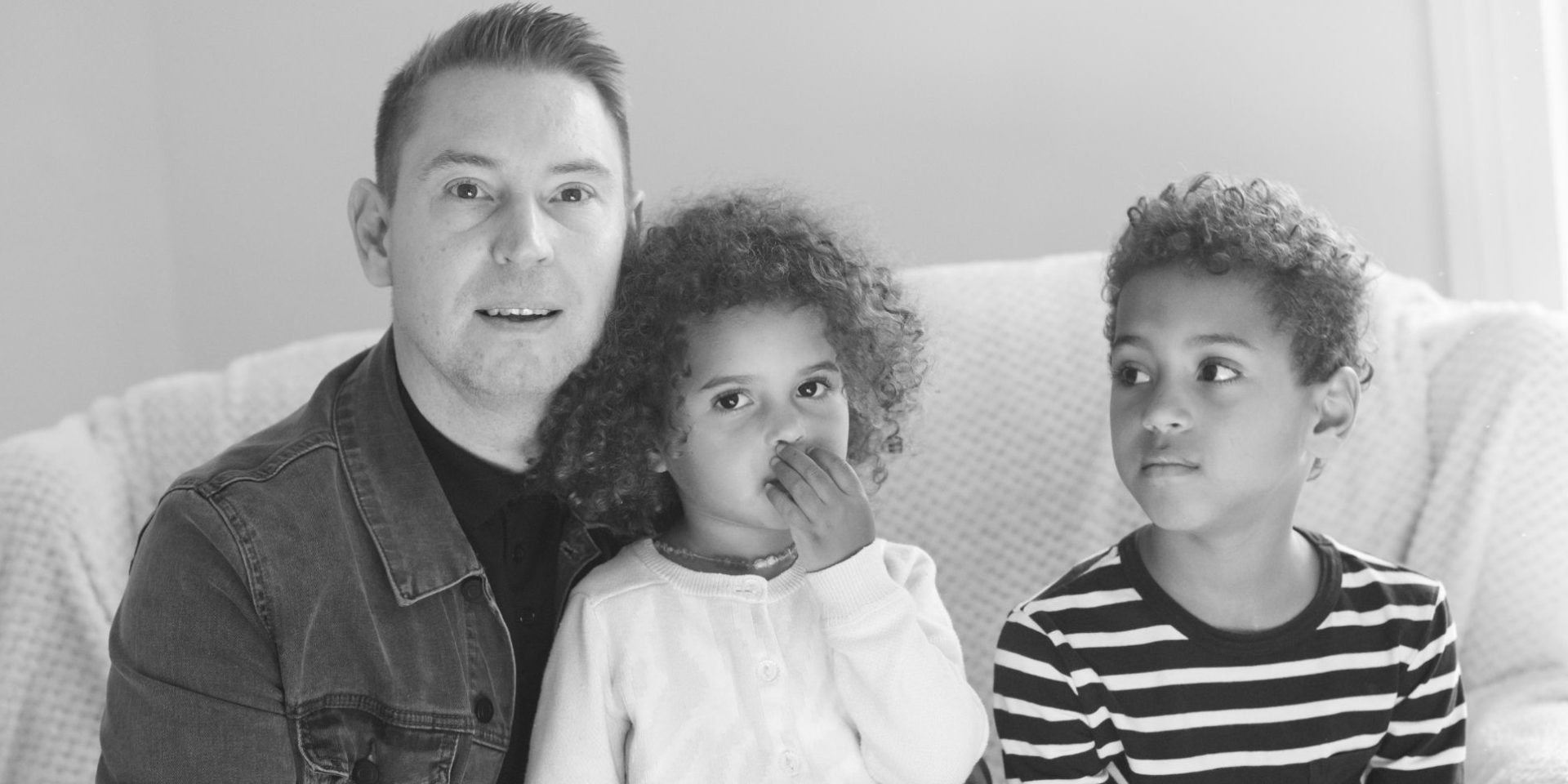Preparing children for the death of a parent is an incredibly difficult thing to do. Whether this is from a long-term illness, like cancer or MS, or a more sudden circumstance, such as an accident or stroke, this is a heartbreakingly sad situation for the whole family.
There is no right or wrong way to cope with this situation and you will know the best way to do this for your own family. From our experience working with bereaved families, we have suggested a number of ways you can prepare your children for the death of a parent or loved one.
Should I tell my children that their parent is going to die?
It’s natural to want to protect children and young people from pain and sadness, especially when talking about the death of a parent or loved one. Often, families think that if they do not talk about it then their children will not be affected or need to worry. However, children are fine-tuned to pick up on stress and worry in their family and, despite your best efforts to hide what is happened from them, they will have a strong sense that something is very wrong.
Children have an ability to deal with the truth that adults often underestimate. Not knowing what is happening can leave them feeling confused and anxious and having only bits of information or inaccurate information is often more worrying for children than being told the truth. You are also risking that they will hear the truth from others outside of the family and this can lead to greater anxiety and distrust.
In not talking about the upcoming death of a parent or loved one, the child’s feelings, the thoughts they have and their responses are left unacknowledged. We cannot stop children from feeling sad, but if we talk about our feelings and give children clear information we can support them in their sadness.
How do I tell my children that their parent is going to die?
Children’s understanding of the situation and what dying means will develop as they grow. Children under the ages of five find the concept of illness and death difficult to understand. They will need a simple explanation of what is happening and what will happen and you will need to repeat this explanation a number of times. Up to the age of 10, children’s understanding is still not fully developed and you will need to keep checking that they understand what is happening and how they are feeling. Older children and teenagers will reflect on what this will mean for them in the future.
Finding the right time and place
Wherever possible it is always best for children to hear the truth about the death of a parent or loved one from those they trust the most. Even if the person they love is too ill to say the words, it is important (if possible) that they are present when the child is told. This helps children to feel included, informed and aware that the person who is dying also knows what is happening. There will never be a right time to tell your children, but finding a time when there is plenty of opportunity for them to ask questions and a place where they feel comfortable is important. It can also help to follow the conversation with some space to have time for a bit of normal family life – maybe watch a film or have a pizza.
Finding the right words
Finding the right words on the spot is hard, so consider writing down what you might say and rehearse it. Use simple, factual language that children will understand.
It can be helpful to think of the process of telling a child about a loved one’s illness like a jigsaw puzzle, putting the pieces together in steps to suit the child. The different pieces of the puzzle will vary depending on the child and the situation but there are three key things to tell children at the start:
- That someone close to them is seriously ill
- The name of the illness
- What may happen
For example, when first telling your children about the situation you could say:
“You know that daddy has been feeling really ill and the doctors have been trying to find out what is wrong? The doctors have found out what is wrong with daddy – he has something called cancer. Cancer is a serious illness and daddy will need special medicine and possibly an operation to see if the cancer can be taken out of his body.”
As the illness progresses, you can add to the jigsaw puzzle – explain what the medicine is and what it will do to daddy (e.g. make him tired and lost his hair), what the operation will involve and eventually what will happen at the end of life stage.
In the days leading up to the death of a loved one, it is time for the last pieces of the jigsaw. The key points to convey are:
- The doctors have tried everything
- It is no one’s fault
- The person doesn’t have very long to live
Children may ask less questions at this time as they are guarding themselves from facing the reality of what will happen next. It is important at this stage to keep the information flowing and checking in that they understand what is happening. Where possible, give them explanations of what to expect.
“So you know I told you daddy will die in the next few days, well when that happens we will be able to say our special goodbyes and spend time with him. It is possible that he can still hear us, but won’t be able to talk with us. Soon his breathing will slow right down and then there will come a moment when his heart will stop and he will die.”
The last days of life will inevitably be heartbreakingly sad for everyone. Yet with the right help and support, children will be able to look back on those days with love and closeness.
Making memories with children
If recovery is unlikely and it is possible, then it becomes important to think about what the parent or loved one would like to say or do with their children before they die. Making new memories and remembering old memories link children to their loved one long after they have died. They become treasured and special memories as the child grows and develops, helping to shape their identity and stay connected.
Here are some ideas for making memories with your child:
- Writing a letter to your child in the future can be an enormous comfort to a child
- Writing down special memories, thoughts about the past and the future can be a lasting reminder for children of a shared bond – you could use our Little Box of Big Thoughts to help you
- Making a memory box together can be comforting and help a child feel close the person – we have memory boxes and instructions available here
How to get support
Our team can give you more advice, information, resources and support to help you support a child or young person when a parent or loved one is going to die. You can call us on 08088 020 021 (8am-8pm, Monday-Friday), email us on ask@winstonswish.org or use our online chat.
Our Winston’s Wish Crisis Messenger is available 24/7 for urgent support in a crisis. Text WW to 85258.
Other resources you might find helpful
As Big As It Gets
Our specialist book offers practical advice for families when someone is seriously ill and may die. Includes guidance, ideas for activities and helpful resources.
Activities for bereaved children
Download our activities to help grieving children and young people to explore and express their feelings and emotions and to help them maintain memories of the person who has died.




